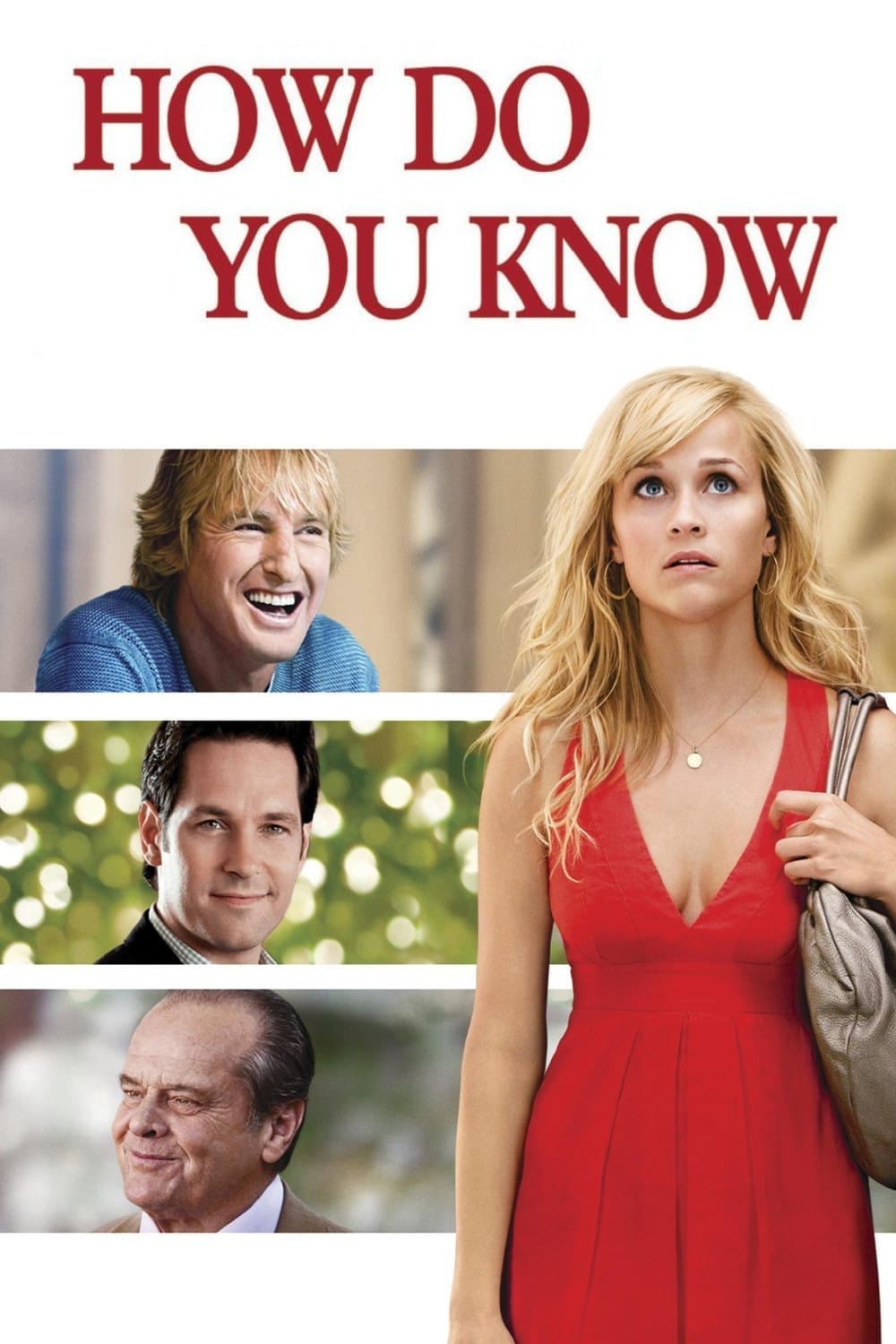
After being cut from the USA softball team and feeling a bit past her prime, Lisa finds herself evaluating her life and in the middle of a love triangle, as a corporate guy in crisis competes with her current, baseball-playing beau.
22 Feb How Do You Know (2010)
Structure, Team Play
Some filmmakers you just fall into. The ones I hold most dear are those that are both expert cinematic storytellers and attempt to reshape me. These are rare, but there is a second tier of cinematic storytellers; although they do not work at deep levels, you just get captured by the mastery of the storytelling. Brooks is one of these. He is a master and even his disaster in 1994 was interesting.
This film did poorly in the US. I think it was not zany enough, short enough or abstracted from reality enough for the audience who is attracted to the form. Perhaps if it is judged as mere candy, it fails. But I found it well met the requirements on which the genre was founded: the alternating of charm in the nature of humans with humour about many of the same traits. This engagement-detachment by humour is perhaps the oldest storytelling device after the technique of omission, and Brooks is delicate if old-fashioned.
The story is that he is valued in the business for adding texture of these two qualities: humour and endearment. But he gets stuck in creating scenes that are no longer than a few minutes, because that is what the market pulls. He gets paid extremely well for guiding ‘The Simpsons,‘ basically two jokes per show, and also as uncredited script doctor on a scene by scene basis. He hates this, he has said and when he can find the space for a long form project, he does it as if his soul is in the balance.
He doesn’t start with characters weaving a story, or even a story proper. He is all about situations and how people react within them as they try to gain control. Our two main characters here, destined for love, are struggling less with the lives they are given than the techniques they had been using until that point to cope. The weapons in forming the new situations we desire then to get, are words. And such words in dialog that is so perfect we don’t deserve the simply by paying 8 bucks.
Brooks is a writer, but it is clear that every line is written within a specific cinematic vision. Some of the shots here are quite unconventional, the composition and rhythm of shots is very personal and the flow of the words absolutely matches or is counterpointed to that rhythm. Watch the motions of the camera and the dialog when Lisa is first in George‘s apartment. This is effective and idiosyncratic to Brooks. It worked for me because these films are all about deferred gratification and he is serious about pushing it.
In little things, it works. Witherspoon‘s lack of sex appeal is handled by making her a tough jock. The formula demands — absolutely demands — that the guy profess his love at the end in front of an audience representing us. We know he is going to her birthday party to do just this, but he does not. Instead Brooks has placed a clever scene before this, a radically unconventional one that works when paired with what happens after the party, observed by no one but us and Nicholsen‘s character. In this scene — possibly the first written — has the two to-be lovers filming an awkward proposal, and then engaging in a re-enactment in a folded engagement. It satisfies the formula without following it.
There are several folds along these lines, highly structured and effective.
Posted in 2011
Ted’s Evaluation — 3 of 3: Worth watching.


No Comments